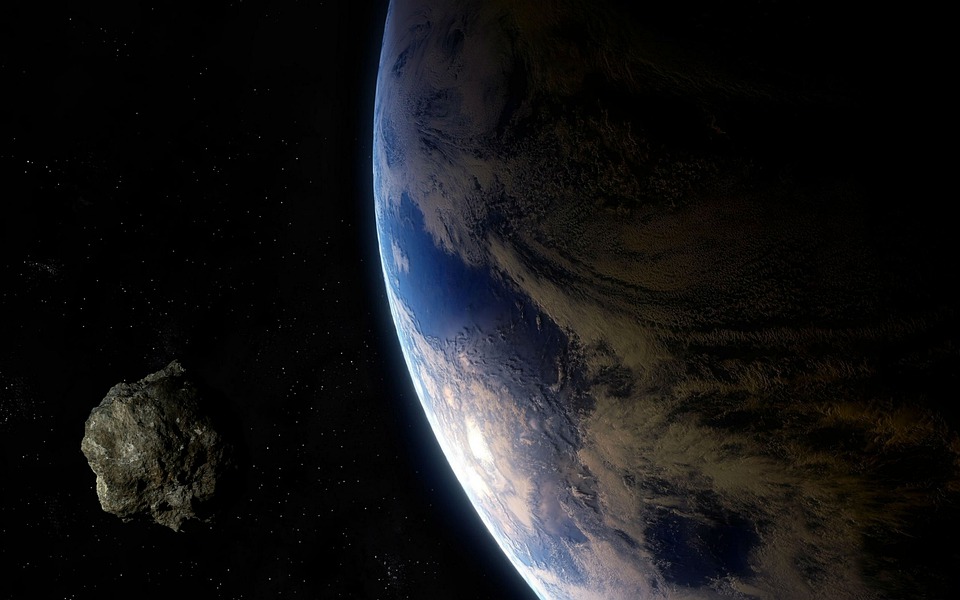Space objects like asteroids regularly pass by our own planet, with some more massive than others. NASA has confirmed that an asteroid will be making its approach to Earth in time for Christmas on the day itself.
It appears that even space is joining in on the festivities as an asteroid that is referred to as 2014 SD224 is making its way Earthbound this month. SD224 will be making its way to Earth just in time for Christmas on the day itself, December 25. 2014 SD224 is a relatively massive asteroid measuring around 123 meters in diameter. By the time it approaches our planet, the space rock would be traveling at a speed of 10 kilometers per second or 36,000 kilometers per hour.
Fortunately, even with its size, SD224 does not pose a threat to our planet. It will only get as close as 3,076,775 million kilometers away, around eight times the distance between Earth and the Moon. Even with its size, NASA has classified the asteroid as a Near-Earth Object.
At the same time, Japan’s space agency JAXA was able to successfully complete its mission of obtaining soil samples from asteroid Ryugu this week. The Hayabusa2 spacecraft’s capsule that contained the samples from the space rock was safely retrieved when it made a landing in Australia. The spacecraft released the capsule on Saturday, and upon reaching 10 kilometers away from Earth, the capsule opened up a parachute to slow down its descent while beacon signals were triggered in order for scientists to determine its location when it makes its landing in the Woomera wilderness.
The search team of JAXA was able to retrieve the 40-centimeter capsule after two hours since its re-entry to Earth. The agency’s Hayabusa2 spacecraft left asteroid Ryugu last year. Upon releasing the capsule of Ryugu samples, the spacecraft will make another journey to another distant asteroid. Following JAXA’s confirmation of being able to successfully retrieve the capsule, they were congratulated by officials at NASA, such as the agency’s associate administrator of Science Mission Directorate Dr. Thomas Zurbuchen.
“Together, we’ll gain a better understanding of the origins of our solar system & the source of water & organic molecules that may have seeded life on Earth,” tweeted Dr. Zurbuchen.



 Trump Administration to Launch Autism Initiatives Targeting Acetaminophen Use and New Treatment Options
Trump Administration to Launch Autism Initiatives Targeting Acetaminophen Use and New Treatment Options  FDA Pilot Program Eases Rules for Nicotine Pouch Makers
FDA Pilot Program Eases Rules for Nicotine Pouch Makers  NASA Astronauts Wilmore and Williams Recover After Boeing Starliner Delay
NASA Astronauts Wilmore and Williams Recover After Boeing Starliner Delay  SpaceX Prioritizes Moon Mission Before Mars as Starship Development Accelerates
SpaceX Prioritizes Moon Mission Before Mars as Starship Development Accelerates  NASA Resumes Cygnus XL Cargo Docking with Space Station After Software Fix
NASA Resumes Cygnus XL Cargo Docking with Space Station After Software Fix  Lost in space: MethaneSat failed just as NZ was to take over mission control – here’s what we need to know now
Lost in space: MethaneSat failed just as NZ was to take over mission control – here’s what we need to know now  Neuralink Plans High-Volume Brain Implant Production and Fully Automated Surgery by 2026
Neuralink Plans High-Volume Brain Implant Production and Fully Automated Surgery by 2026  Trump and Merck KGaA Partner to Slash IVF Drug Costs and Expand Fertility Coverage
Trump and Merck KGaA Partner to Slash IVF Drug Costs and Expand Fertility Coverage  Blue Origin’s New Glenn Achieves Breakthrough Success With First NASA Mission
Blue Origin’s New Glenn Achieves Breakthrough Success With First NASA Mission  Tabletop particle accelerator could transform medicine and materials science
Tabletop particle accelerator could transform medicine and materials science  SpaceX Starship Explodes in Texas During Test, Citing Nitrogen Tank Failure
SpaceX Starship Explodes in Texas During Test, Citing Nitrogen Tank Failure  SpaceX’s Starship Completes 11th Test Flight, Paving Way for Moon and Mars Missions
SpaceX’s Starship Completes 11th Test Flight, Paving Way for Moon and Mars Missions  Neuren Pharmaceuticals Surges on U.S. Patent Win for Rare Disorder Drug
Neuren Pharmaceuticals Surges on U.S. Patent Win for Rare Disorder Drug  Eli Lilly’s Inluriyo Gains FDA Approval for Advanced Breast Cancer Treatment
Eli Lilly’s Inluriyo Gains FDA Approval for Advanced Breast Cancer Treatment 































